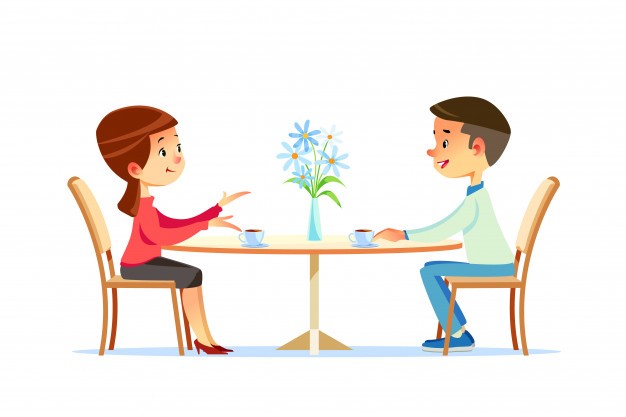By Natalie Taylor
A few weeks ago we spoke of couples who shelter in place, setting aside some time each week to discuss their wants and needs. I suggested a couple of rules for a meaningful and fruitful conversation.
Here’s an important rule and an old one: Do not assume. We often think because we’ve lived with someone for a long time that we know exactly what the other person wants. I often use the following as an example of a conclusion without investigation. A few years ago I was counseling an elderly couple when the topic of music arose. “I thought you didn’t like jazz,” he said. “Of course I do. Where did you get that idea?” she responded. Apparently, one day she didn’t approve of a particular piece playing on the car radio, and he assumed that it was all jazz that she didn’t like. So for years they avoided listening to jazz while together, as she also assumed because of his response that he didn’t like that kind of music. How many years went by without their going to jazz concerts or nightclubs because they failed to ask? Unfortunately, they had assumed, wrongly, as it turned out. Even if you think you know, it pays to ask.
An interesting, sometimes astonishing, result of assumptions is that, we may find out that our partner is nowhere near as predictable or transparent as we thought. People do change; likes and dislikes, preferences, and tastes evolve over time. That’s one of the things that makes people so attractive. We can learn from them and be excited by them, and find out that life—and our relationships—can be far more engrossing and captivating than we gave them credit for. Who needs a jigsaw puzzle when we have such refreshing and thought-provoking people living with us?
A good way to start the kind of “checking in” conversation referred to above is to simply ask the question: “How are we doing?” This can be followed with: “Have you been upset or angry with me this week? Have I been upset or angry with you?” If either of those are true, do talk about it and resolve it so you are not one of those couples still angry about stuff that happened years ago and still causing problems because one of you can’t let go of it.
We can each approach this pandemic sheltering episode in different ways. We can decry the events that have led to this seemingly antisocial situation where our friends and relatives appear to us only on a computer screen, and our significant other becomes ever more irritating on a daily basis. Or we can rejoice in this new-found relationship where we strive to learn more and more about the person who lives with us and has so much to offer if only we give it a chance. Which do you choose?
Alan Leavens, Ph.D. is a California licensed Clinical Psychologist living and working in SMA. For questions or concerns that you wish him to address, please email: aleavens@drleavens.com.

